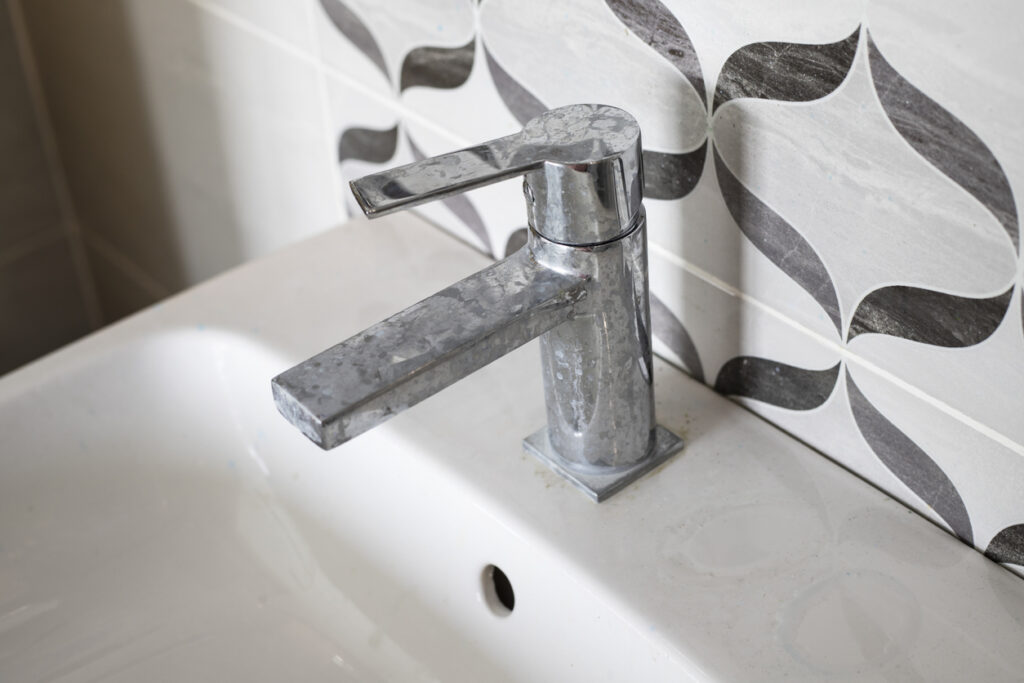How Does a Water Softener Work?

How Does a Water Softener Work?
Is your skin feeling dry or itchy after showering? Are you noticing more frequent spots or streaks after cleaning dishes? Your water, specifically the hardness of your water, may be the cause of these issues and others. Fortunately, water softeners are a helpful solution for homeowners who want to address this water concern. Regarding water softeners, people are often interested in the following information:
- How does a water softener work
- How to use a water softener
- Signs of hard water
Keep reading to learn more about the operations and maintenance of a water softener, as well as signs that a water softener may be needed.
How Does a Home Water Softener Work?
As Healthline highlights, hard water isn’t generally dangerous to people’s health, unlike the many health concerns associated with water contamination. However, this water quality can result in personal discomfort, reduced longevity of your appliances, and other undesirable impacts. Consequently, many homeowners opt to incorporate a water softener into their water system. While water softener configurations may vary, here’s an overview of how a water softener works:
- From the main water line, hard water goes into the water softener tank.
- Then, it moves through resin media to remove minerals, such as calcium and magnesium, that cause hard water. Depending on the type of water softener or water conditioning product selected, hard water and other water concerns, like water with an unpleasant odor or taste, may also be addressed. For example, the Evolve® Series EVRC that we recommend at the Aqua Pump Company includes both resin media and activated carbon to soften water and remove contaminants that cause smelly or off-tasting water.
- After the removal of hardness-causing minerals and any other possible contaminants, depending on the softener feature, the water is now available for home use.
- Although not directly responsible for addressing the hard water, a brine-based regeneration process is also important in how a water softener system works. During this process, resin beads are cleaned with a brine solution and any previously removed particles are flushed away. The resin filtering component is then ready to continue softening.
How to Use Water Softeners and Maintain Them
Once your water softener has been professionally installed by the water experts near you, how to use water softeners primarily involves maintenance. Prior to installation, you and your water specialists have likely already considered factors such as the level of water hardness and water usage in your household when choosing the right water softener or other treatment system for your home. You may even have set up a professional maintenance schedule. So, what else is there to know about how to use water softeners and maintain them? Monitoring water quality is one of the most important tasks for homeowners. Changes to quality may indicate its time to replenish the salt levels or adjust system settings if needed. Other maintenance includes cleaning the tanks and replacing the softener components when needed.
Signs of Hard Water
Water testing is both an important part of water system maintenance and a necessity for evaluating your water treatment needs. Water testing not only helps with hard water identification but also reveals contaminants that may be in your water supply such as arsenic or uranium. In addition to testing, here are 5 other signs of hard water that you may experience in your home:
- Around your faucets or shower heads, white or chalky-looking substances can appear. These are often mineral accumulations and point to the presence of hard water.
- Both your skin and your hair can be impacted by hard water. The same minerals that show up in sinks and showers also cause discomfort or changes to these parts of the body. For example, hair may be frizzier or skin may be more frequently dry or irritated due to hard water.
- Your appliances and plumbing also feel the effects of hard water, such as clogs in pipes or fixtures and reduced operational efficiency or lifespan.
- Additionally, issues like water spots on a newly washed glass or a recently acquired shirt that seems to be fading fast are often caused by hard water.
- Does your water have an unusual taste or smell to it? Hard water may be the culprit.
Especially if you are noticing more than one of these signs or a greater frequency in their presence, it may be time to consult with a local water expert, such as the Aqua Pump Company. Serving locations in both Connecticut and western Massachusetts, the Aqua Pump Company provides water testing and water softener solutions in addition to whole house filtration systems, well repair and maintenance, and many other water system services and products. We also offer 24-hour emergency service on every day of the year. Contact the Aqua Pump Company today with any questions or to schedule a service!
